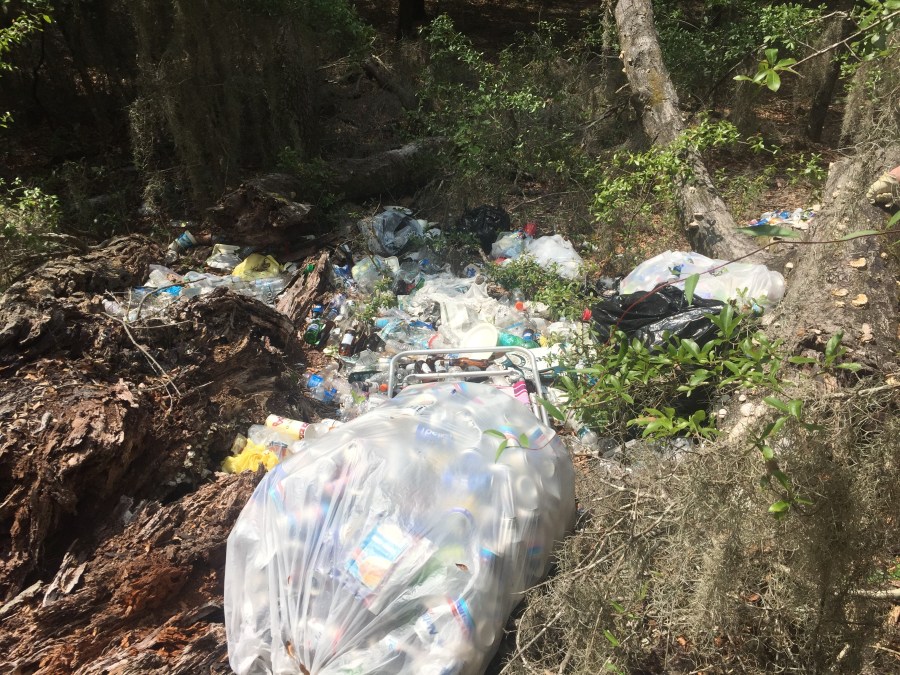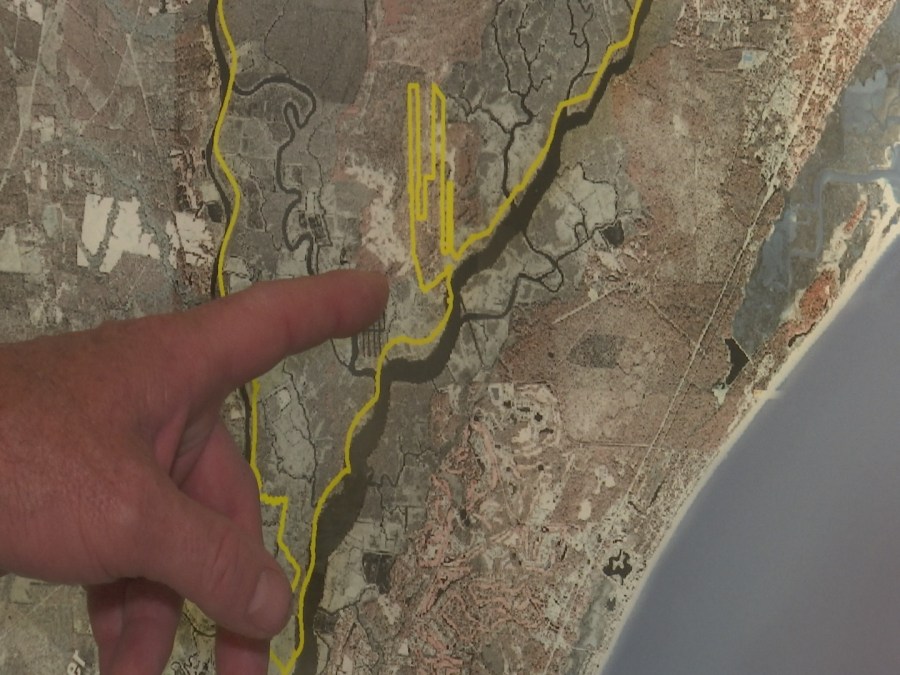GEORGETOWN COUNTY, SC (WBTW) – The Waccamaw National Wildlife Refuge in Georgetown County cleans out dozens of bags of trash every year from beaches around the refuge, and last week found Sandy Island trashed with piles of beer cans and plastics.
One Waccamaw refuge manager who helps in the clean up effort and discovered that the continued dumping of trash could cause problems beyond the waterway.
“There was a lot of trash that we discovered up at the top of the dunes, and it’s a regular thing,” said Craig Sasser, the refuge manager at Waccamaw National Wildlife Refuge. “We have to clean it up every year. We bring out 20 to 30 bags every time we visit.”

Trash pile filling a portion of Sandy Island, where Waccamaw National Wildlife Refuge volunteers picked up several bags of trash Tuesday.
When Sasser posted on his Facebook page Tuesday about the trash being thrown on Sandy Island, his goal was to get the word out.
“It’s against the law to leave those cans out there,” he said.
Sasser says a lot of different law enforcement agencies pitch in to help manage the littering issue.
“South Carolina DNR is out there working it, as well as Georgetown County Police Department,” said Sasser.
He points out that a lot of the trash can break down into microplastics that may end up in the ocean, that could hurt marine animals.
“Most of the trash is right here on this bend on Thoroughfare Creek,” he said.

Sasser says just two days ago, a young man on the beach, not on the refuge, was sinking beer bottles in the water, and when parents approached him, he took it upon himself to fix the problem.
“He actually went out and picked his bottles back up and put them in the boat,” Sasser said.
He says if others out of the thousands that visit the area this time of year could do their part too, it might help things.
“It really comes down to the general public that’s visiting the refuge,” he said. “There’s many, many beaches on the refuge, and the issue really comes down to people not wanting beer bottles and beer cans in their boat.”









